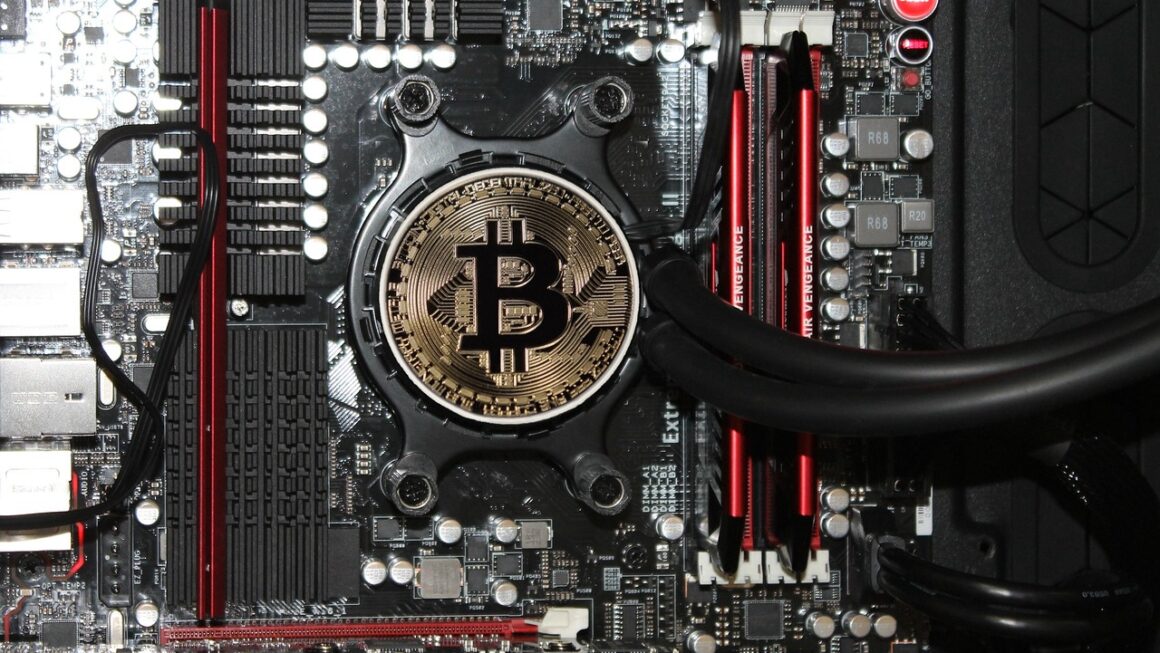Zero-knowledge rollups (zk-rollups) have emerged as a leading layer-2 scaling solution for Ethereum, promising to significantly increase transaction throughput while maintaining the security guarantees of the underlying blockchain. This blog post delves into the intricacies of zk-rollups, exploring their architecture, benefits, challenges, and real-world applications. Whether you’re a developer, investor, or simply curious about the future of blockchain scaling, this guide will provide a comprehensive understanding of zk-rollups and their potential impact on the Ethereum ecosystem and beyond.
Understanding Layer-2 Scaling Solutions
The Need for Scaling
Ethereum, like many other blockchains, faces scalability challenges. The number of transactions it can process per second (TPS) is limited, leading to network congestion, high transaction fees (gas fees), and slow confirmation times. This hinders the adoption of decentralized applications (dApps) and makes them less accessible to a wider audience.
Layer-1 vs. Layer-2
There are primarily two approaches to scaling a blockchain:
- Layer-1 Scaling: Involves modifying the underlying blockchain protocol itself. Examples include increasing block size or implementing sharding. While effective in theory, Layer-1 solutions often require significant changes to the consensus mechanism, potentially compromising security or decentralization.
- Layer-2 Scaling: Refers to solutions built on top of an existing blockchain without modifying its core protocol. These solutions aim to offload transaction processing from the main chain, thereby reducing congestion and improving scalability. zk-rollups fall into this category.
What are zk-Rollups?
The Core Concept
Zk-rollups are a type of Layer-2 scaling solution that bundles (or “rolls up”) multiple transactions into a single batch and submits them to the Ethereum main chain. Instead of posting each individual transaction, the rollup publishes only the transaction data (in a compressed form) and a cryptographic proof, known as a zero-knowledge proof (ZKP), which validates the correctness of the bundled transactions.
How zk-Rollups Work: A Step-by-Step Explanation
- Transaction Execution Off-Chain: Transactions are executed off-chain within the zk-rollup’s environment. This dramatically reduces the computational load on the Ethereum main chain.
- State Updates: The zk-rollup maintains a state that reflects the balances and data associated with users interacting within the rollup. When transactions are executed, the rollup’s state is updated accordingly.
- Batching and Compression: Multiple transactions are batched together into a single rollup block. The transaction data is compressed to minimize the amount of data that needs to be posted on-chain.
- Zero-Knowledge Proof Generation: A ZKP is generated that cryptographically proves the validity of all the transactions within the rollup block and the correctness of the state transition. This proof demonstrates that the transactions were executed correctly according to the rollup’s rules without revealing the details of the individual transactions.
- On-Chain Verification: The compressed transaction data and the ZKP are submitted to a smart contract on the Ethereum main chain. This smart contract verifies the ZKP.
- State Root Update: If the ZKP is valid, the smart contract updates the rollup’s state root on the Ethereum main chain. This state root is a cryptographic hash representing the current state of the rollup. The Ethereum main chain effectively acts as a secure and immutable record of the rollup’s state.
Types of Zero-Knowledge Proofs
Several types of ZKPs are used in zk-rollups, each with its own trade-offs:
- zk-SNARKs (Zero-Knowledge Succinct Non-Interactive Argument of Knowledge): Known for their small proof sizes and fast verification times. However, they often require a trusted setup, a process that generates the cryptographic parameters necessary for creating and verifying proofs. If the trusted setup is compromised, it could potentially allow someone to create fraudulent proofs.
- zk-STARKs (Zero-Knowledge Scalable Transparent Argument of Knowledge): Do not require a trusted setup, making them more secure in some ways. However, zk-STARKs typically have larger proof sizes than zk-SNARKs, which can increase on-chain data costs.
Benefits of zk-Rollups
Increased Transaction Throughput
zk-rollups can achieve significantly higher transaction throughput compared to the Ethereum main chain. By processing transactions off-chain and only posting compressed data and ZKPs on-chain, they can handle hundreds or even thousands of transactions per second. Estimates suggest zk-rollups can achieve throughput exceeding 2,000 TPS or even higher.
Reduced Transaction Fees
Since the cost of verifying a single ZKP is spread across multiple transactions, zk-rollups can drastically reduce transaction fees. Users pay only a fraction of the gas fees they would incur on the main chain.
Enhanced Security
zk-rollups inherit the security of the Ethereum main chain. The validity of the rollup’s state is cryptographically guaranteed by the ZKP, which is verified by a smart contract on Ethereum. This ensures that even if the rollup operator is malicious, they cannot tamper with the state or steal funds.
Data Availability
zk-rollups guarantee data availability by posting transaction data on-chain (albeit in compressed form). This ensures that users can always reconstruct the rollup’s state, even if the rollup operator disappears.
Example: DeversiFi
DeversiFi, a decentralized exchange, utilizes zk-rollups to offer faster and cheaper trading. By leveraging StarkWare’s StarkEx technology, DeversiFi allows users to trade with significantly lower gas fees and near-instant settlement times, making decentralized trading more accessible and efficient.
Challenges and Considerations
Computational Complexity
Generating ZKPs is computationally intensive, requiring specialized hardware and software. This can add complexity to the development and operation of zk-rollups.
Development Complexity
Developing and auditing zk-rollups is a complex and challenging task. It requires expertise in cryptography, smart contracts, and distributed systems. The relative immaturity of the technology and the limited availability of experienced developers can hinder adoption.
EVM Compatibility
Originally, zk-rollups struggled with full compatibility with the Ethereum Virtual Machine (EVM). This meant that porting existing dApps to zk-rollups often required significant code modifications. However, advancements are being made in creating zk-EVMs, which aim to provide full EVM compatibility, making it easier for developers to migrate their dApps.
Censorship Resistance
While zk-rollups provide strong security guarantees, the rollup operator could potentially censor transactions by refusing to include them in a rollup block. Solutions to mitigate this risk include decentralizing the sequencer (the component responsible for ordering transactions) and implementing mechanisms that allow users to force transactions onto the chain.
The Future of zk-Rollups
zkEVMs: Bridging the Compatibility Gap
zkEVMs are a crucial development that aims to bring full EVM compatibility to zk-rollups. By allowing developers to run existing Ethereum smart contracts within a zk-rollup environment without modification, zkEVMs can unlock the full potential of zk-rollups for a wider range of dApps.
Adoption and Ecosystem Growth
As zk-rollup technology matures and becomes easier to use, we can expect to see increased adoption by dApps and users. The development of tools, libraries, and infrastructure will further accelerate this growth.
Competition and Innovation
zk-rollups are not the only Layer-2 scaling solution. Optimistic rollups and other approaches are also being developed. This competition will drive innovation and lead to even more efficient and scalable solutions for Ethereum and other blockchains. Data availability solutions like Celestia are playing an important role in rollup infrastructure and scaling.
Conclusion
zk-rollups represent a promising solution to Ethereum’s scalability challenges. By leveraging zero-knowledge proofs and off-chain computation, they can significantly increase transaction throughput, reduce fees, and maintain the security guarantees of the underlying blockchain. While challenges remain, ongoing development and innovation are paving the way for widespread adoption and a more scalable and accessible decentralized future. Understanding the core principles, benefits, and challenges of zk-rollups is crucial for anyone interested in the evolution of blockchain technology and its potential to transform various industries. As projects like DeversiFi demonstrate, zk-rollups are already making a tangible impact, and their influence is only expected to grow in the years to come.
Read our previous article: Network Infrastructure: Future-Proofing For Quantum & AI




